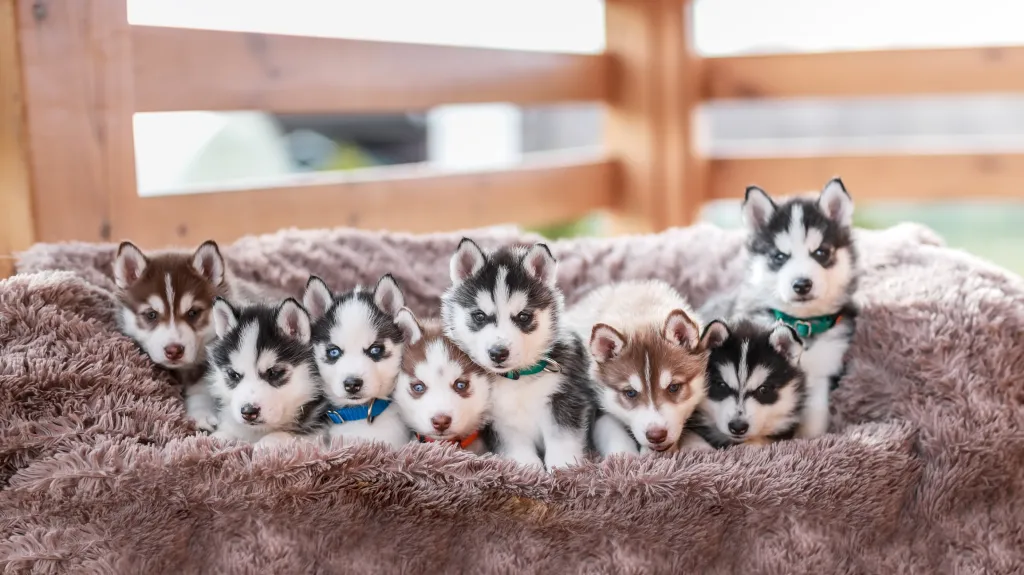One of the most recognizable, iconic, and historically praised breeds is the Siberian Husky. There are few creatures more adorable than Husky puppies! Who doesn’t love that curly tail? Who hasn’t been struck by those magnetic and soulful eyes? Siberian Husky puppies delight everyone they meet with their genuinely social and affectionate disposition. If you want Siberian Husky puppies of your very own, you’re not alone! Siberian Huskies are, by far, one of the most in-demand dog breeds. Do you have what it takes to be the right companion for a Siberian Husky puppy? Here are some facts and pictures of Siberian Husky puppies before you adopt.
The breed has a history as a well-respected work dog
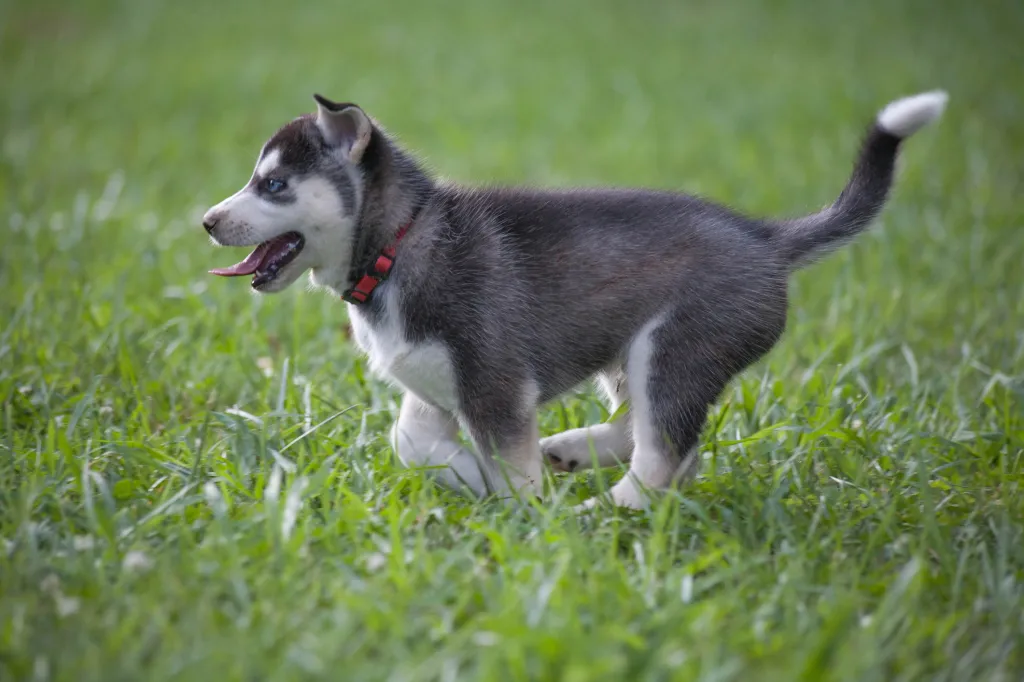
Siberian Huskies are officially classified by the AKC as working-class dogs. They work hard and they play hard, all for their family. It’s all for the pack, baby!
Bringing a Siberian Husky puppy into your home is a joyous experience. That said, you must be the right companion, with a family ready to take on a full-fledged dog. Arguably, there isn’t a breed more definitively dog, in every sense you can imagine, than the Siberian Husky.
Bred in northeastern Siberia, by the Chukchi tribe, the first Siberian Huskies were crucial for hunting, gathering, and transportation. These pups pulled their weight within their tribe, were treated with the utmost respect for it, and have garnered historical notoriety as a result.
In New York City’s infamous central park stands an equally infamous statue of Balto — a notorious, life-saving Siberian Husky. In 1925, Balto led a team of sled dogs over 700 miles to deliver a critical Diptheria serum to a dying Alaskan community.
The Iditarod Trail Sled Race is evidence of that hard-fought achievement and work ethic.
This breed is not suitable for the casual dog parent looking for something pretty to walk to the park, unless that walk to the park is across the Arctic Tundra. OK, maybe it’s not that serious, but hopefully, you get the point.
You’ll fall in love with their appearance
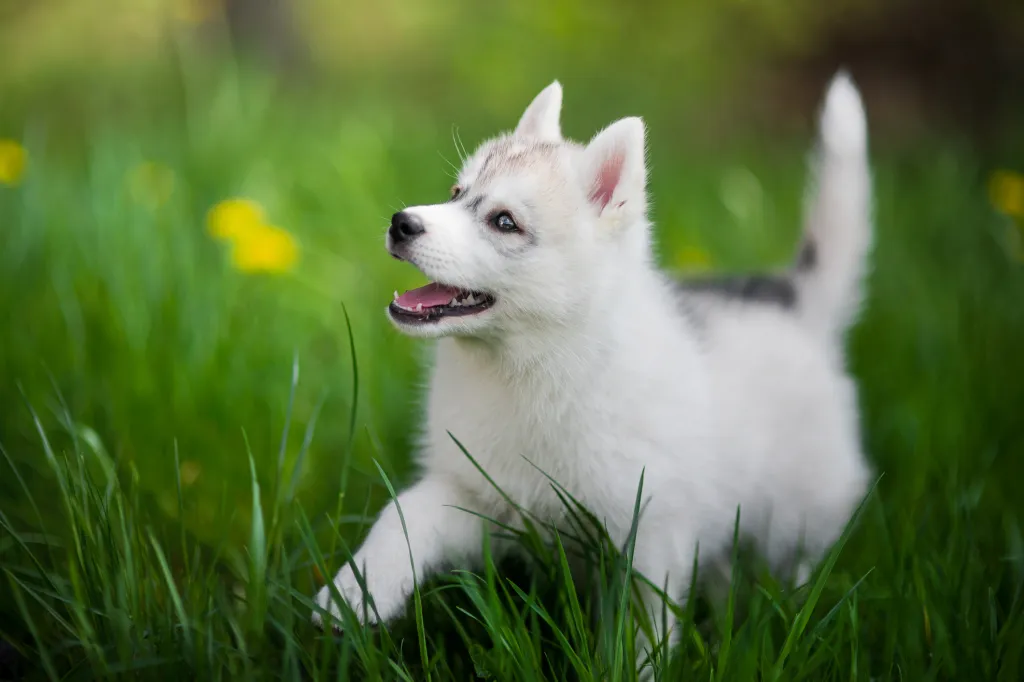
Siberian Huskies have thick, double-fur coats, distinctive markings, a vast array of striking eye colors, and a very recognizable tail.
A Siberian Husky’s coat is dual-layered — thick undercoat, soft outercoat — and can take on a wide variety of colors and markings. No color follows breed rules more than any other, nor does eye color, or the occurrence of bi-eyes. However, black and white coats are most common.
Markings typically include white paws and legs, facial mask hints, and tail tips. However, markings can occur in a wide variety, which includes nose markings.
By far, Siberian Huskies are most recognizable by their iconic, heavily-furred, “Siberian Swirl” tail. It often curls far enough to touch their back. Adorably, when they sleep, they’ll often do so in a curled position, so their tail can keep their nose warm.
They’re going to get bigger
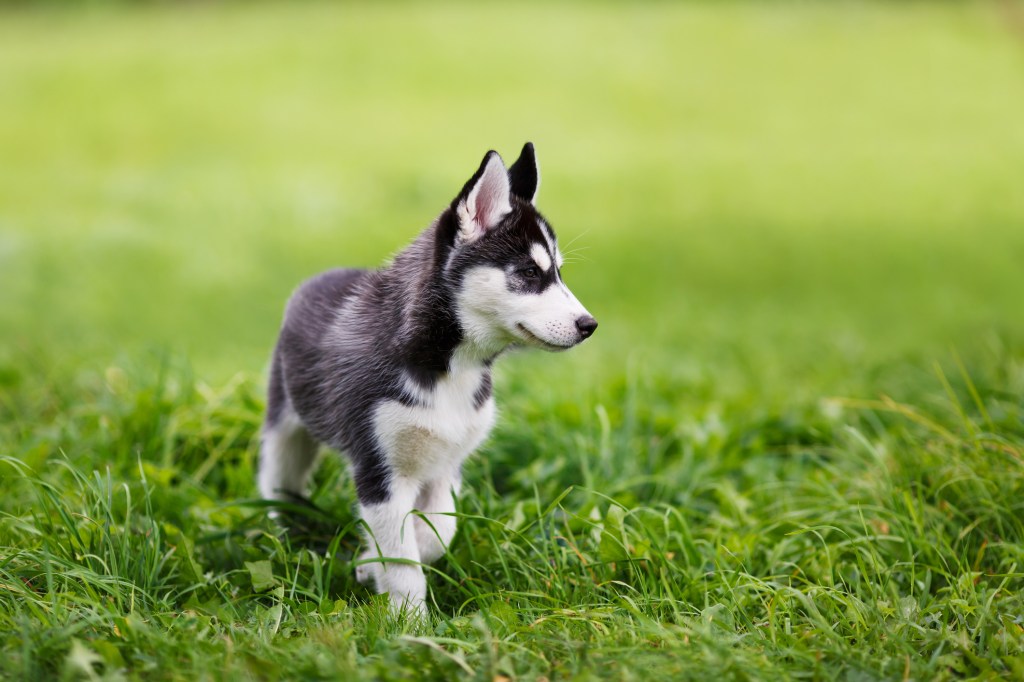
Siberian Husky puppies may be small when you bring them home, but they’re going to grow! Breed standards recognize the Siberian Husky as being generally medium in size.
Fully grown male Huskies range from 45 to 60 pounds, with heights of 21 to 24 inches. Female Huskies range from 35 to 50 pounds, with heights of 18 to 22 inches.
The general expected lifespan for a Siberian Husky is 12 to 15 years.
Huskies are social and family-oriented
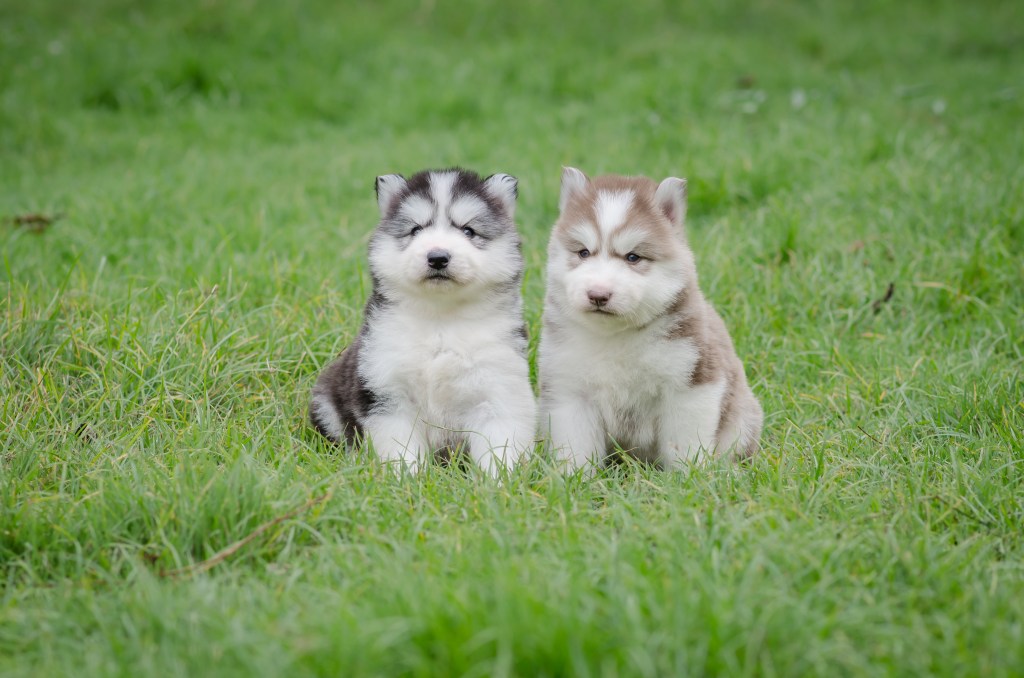
Pack animals love being in a family environment. Because of their family-oriented upbringing, Siberian Huskies are officially rated by the ASPCA as a breed that is wonderful with children.
Their need to be social is instinctual, strong, and ever-present. You must be a confident leader to reign it in and teach leash training — as well as how to heel — early.
Relying on this breed not to run to strangers or to be a guard dog is fool-hardy. They will be with their humans, not manning a post.
These pups are cunning escape artists and notorious howlers
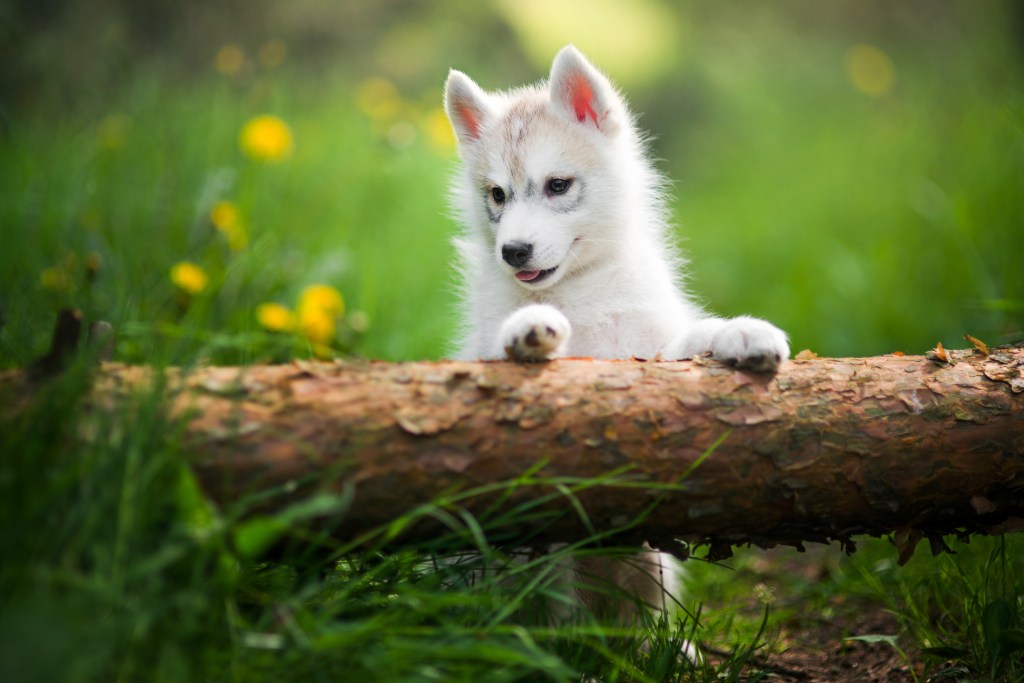
Training Siberian Husky puppies is absolutely necessary to temper their various strong-willed breed attributes. If you want a pack dog, you have to be the pack leader.
Known to dig, chew, and scale high fences, a Siberian Husky without daily and consistent training will run all over you — and possibly destroy your house.
They exhibit high indoor energy and need exceptional amounts of exercise. Fifteen minutes of obedience training per day will make a world of difference and give your dog the structure that they were bred for and prefer.
Do not rely on a high fence in place of appropriate training. Siberian Huskies have been known to scale 8-foot fences, and electric fencing has often proven ineffective. They’re just too smart.
And all dogs howl, but Siberian Huskies really love showing off those vocal cords. In fact, they rarely bark and much prefer to serenade the neighborhood with howls.
A Husky howl can be heard for miles, but training can keep the neighbors from picketing.
A Siberian Husky needs to run
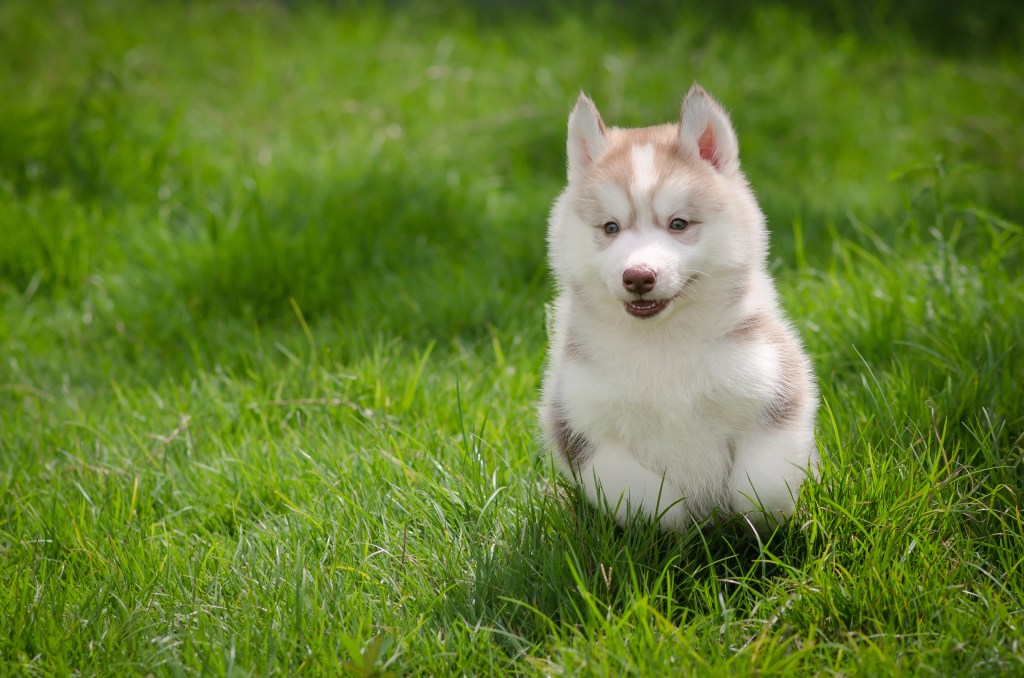
Having a family fully equipped with highly energetic youngsters and pups is ideal to keep this breed busy.
Built with a strong, confident, and smooth gait, Siberian Huskies are able to carry light loads at incredible distances, which of course is what solidified their place in history as legendary sled dogs. To put it plainly, they love to run.
In fact, Siberian Huskies love to run so much that, over the course of evolution, they’ve been known to alter their own metabolism. That allows them to go even further distances without fatigue on minimal energy intake.
If you’re a jogger, this breed is the perfect fit. If you have a family full of joggers, even better! You are choosing a nomadic breed that has an exorbitant amount of energy and is historically praised for running prowess. Don’t think that you’ll be able to skate on once-a-day walks.
One of the most common things reported by Siberian Husky parents is a lost dog. They will find their own ways to run and find an adventure if you don’t properly train and exercise them, or provide accommodations suitable for the breed.
You can’t forget their mental workout, either
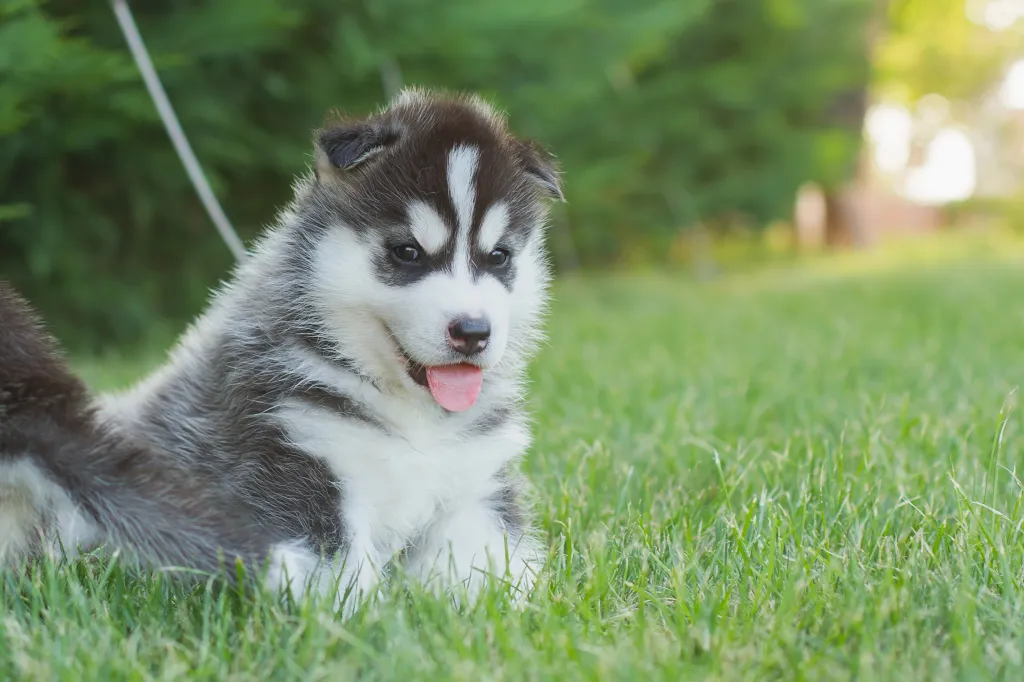
Training your Siberian Husky doesn’t just make your life easier; it develops their mind so they reach their full potential as an intelligent, living being. Just like humans, an intelligent dog needs to have their brain exercised and challenged. It’s arguably more important for well-being than physical exertion.
In the event of an extreme emergency, your dog might be able to deduce a course of action that saves you or your loved ones. Why? Because they had those brain muscles, capable of deductive reasoning, worked and evolved.
You can and should opt to adopt
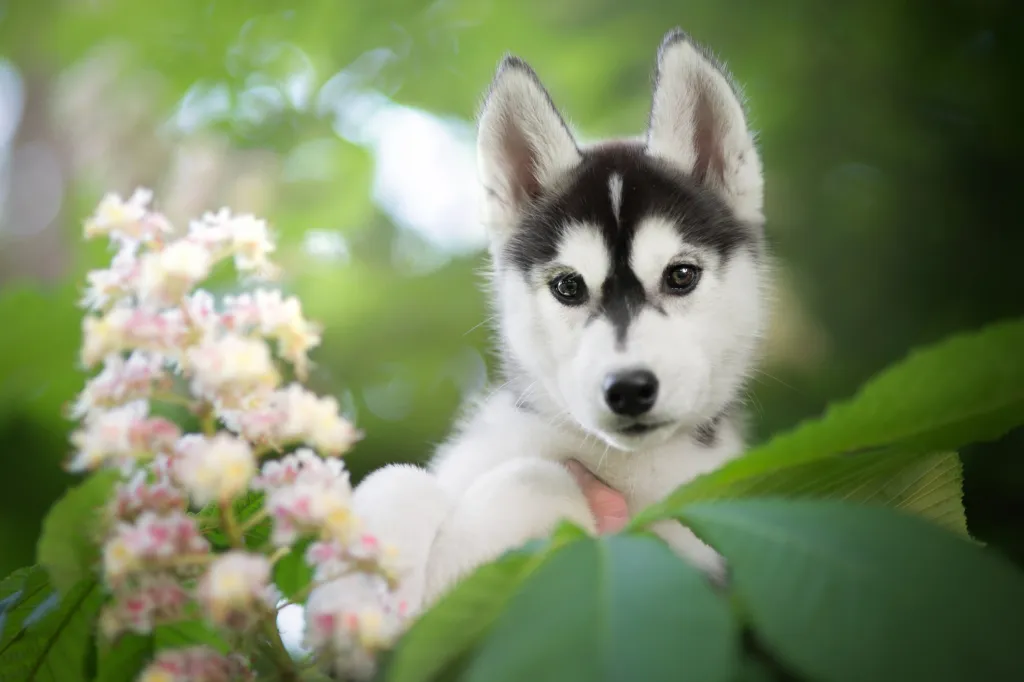
Acquisition of a Siberian Husky can be done via adoption; you don’t need to go through a breeder. That said, be sure to thoroughly research any rescue organizations you’re considering for integrity. Only support outfits that have a solid reputation of being both ethical and humane.
Consider this research your first necessary step in being the kind of parent a Siberian Husky truly needs. If that seems like too much, then this breed will be too much.
Finding a Siberian Husky up for adoption may seem like more of a stretch than it is. Sure, this is a very in-demand breed, but therein lies the problem. Countless humans bite off more than they could chew — pun intended — and end up surrendering their Siberian Huskies. In fact, the AKC reports that the vast majority of Siberian Husky rescue dogs are surrenders.
Commonly, the only difference between a rescue dog and one from a breeder is the age of the pup. Rescues tend to be older, but not always. Also, the outfits caring for them have typically already handled their medical needs — including spay/neuter surgery, as well as microchipping and initiating training. This is especially likely if it’s a rescue specifically dedicated to Siberian Huskies.
They have working-class appetites
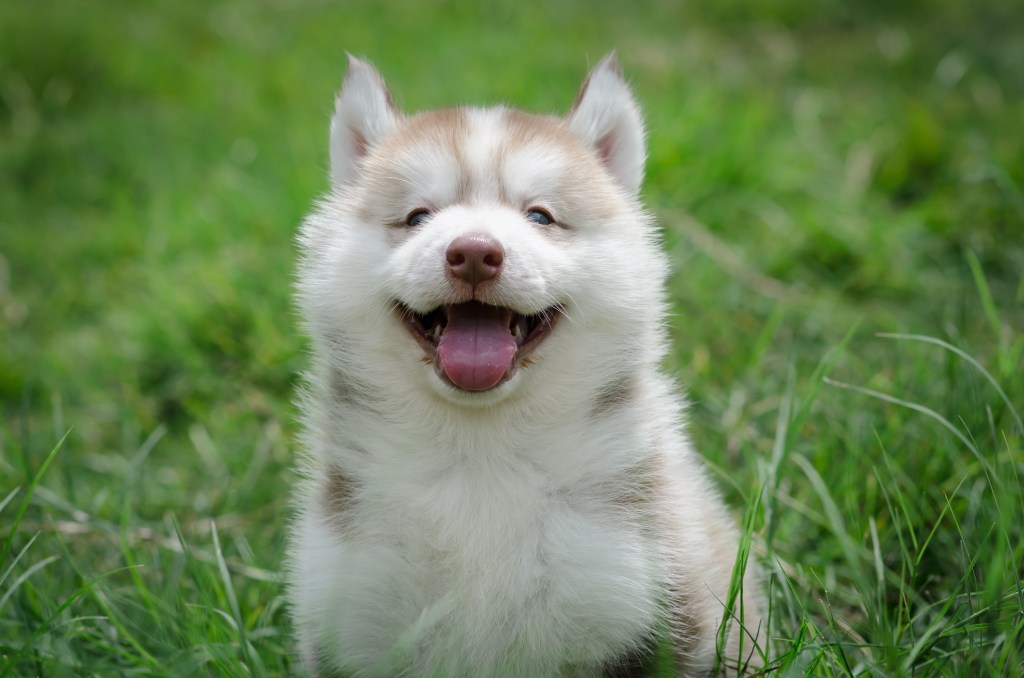
A working-class pup has a working-class appetite. Don’t we all?
With the combination of working-class breeding and the evolution of domestication, Siberian Huskies have specific needs for feeding. When considering a Husky puppy, be sure that you fully understand those needs and why they exist.
There are actually three options for Siberian Husky diets: raw, commercially processed, or a combination of both. The most affordable is processed. It can come in either dry or wet varietals that are long-lasting and easy to store.
Many Siberian Husky parents prefer raw foods. Chicken, beef, lamb, fish, vegetables, and fruits — with the exception of grapes, prunes, and raisins — are ideal. Just as with humans, raw and clean food is far more nutritious. It also better aligns with the history and evolution of the breed.
A combination of processed and raw food is acceptable. However, each of these diet types is digested in entirely different ways by the dog. Therefore, they should not always be served together. With that in mind, you must ask your vet for advice when it comes to your individual dog.
They prefer a consistent feeding schedule
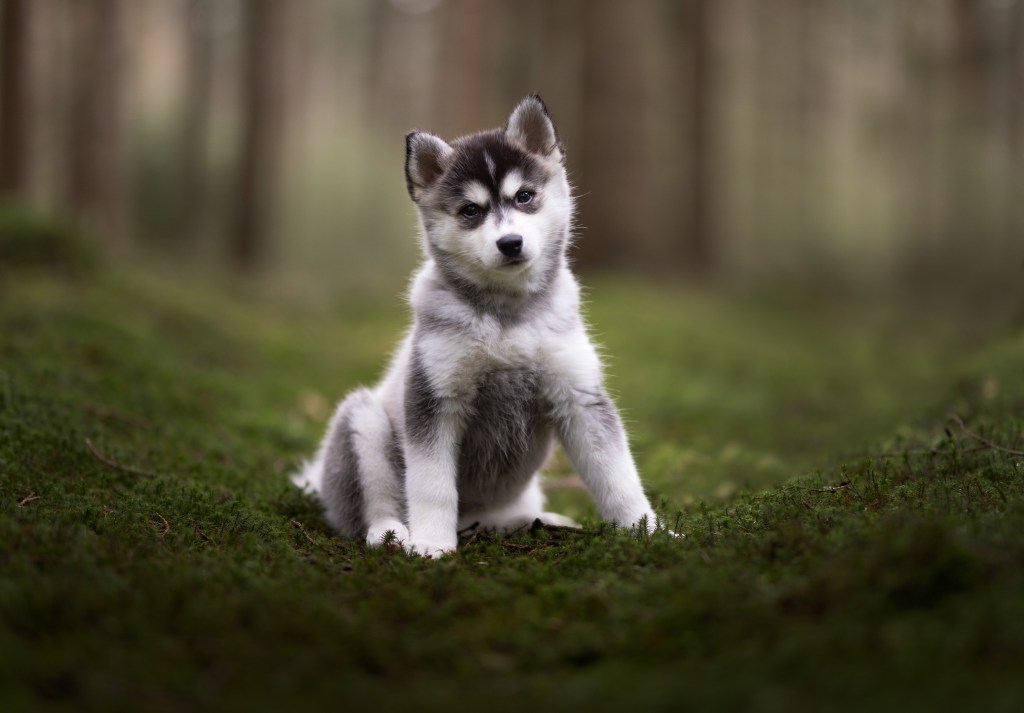
Consistent times for feeding are key, with thoughtful consideration to timing around exercise.
A dog’s digestive process can render unhealthy results if feeding occurs too close to exercise. Don’t plan to feed your puppy right before exercise. Wait two hours. Or, if you decide to feed after exercise, wait 30 minutes. Prioritize water intake and body cool down first.
Siberian Huskies will generally only eat what they need. They do not tend to overeat. Properly space two to three feeding times per day with various exercise times. Small, spaced-out meals will serve your Siberian Husky well. Their breeding as work dogs, in harsh conditions, means that they don’t need much. That’s great for your pocketbook if you’re providing good, nourishing food instead of processed.
If you’re going the processed route for their food, however, a good rule is to only put out about 60 percent of what the label suggests. Your best bet is asking your veterinarian for advice on your dog’s diet.
Their fur is going to need a lot of care
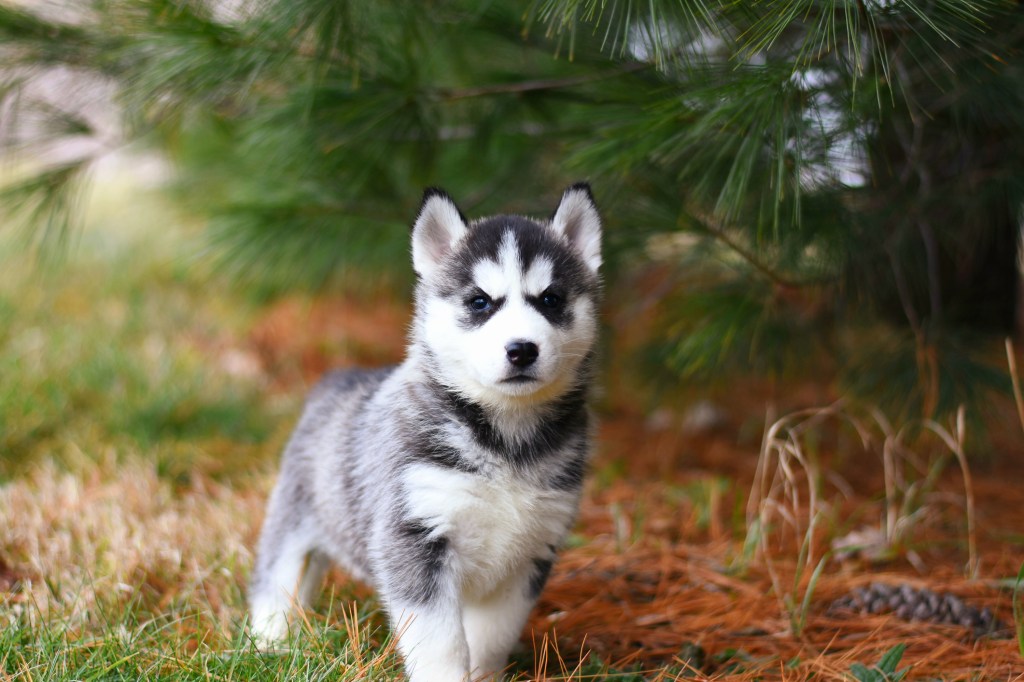
Any Siberian Husky parent will tell you the same thing: proper grooming is a big deal. Arm yourself to the teeth with brushes and vacuums. Don’t even bother with this breed if you’ll get fussy about some fur laying about. Siberian Huskies are epic shedders. It’s quite prolific.
Is my Siberian Husky losing its fur?! No, that’s just the way it sheds. All the time. Brush, brush, brush! Acclimate your Husky puppy to brushing at a young age.
Siberian Husky coats are self-cleaning, so you’ll only have to give them a few baths a year. However, what you’ll lose in bath time, you’ll make up for with brushing. At least once per week is recommended, if not more.
When brushing, a metal, pin, or wide-toothed comb is ideal, with a paddle brush follow-up. Do a once-over with the comb, and then again with the paddle. Furthermore, each coat must be brushed separately. But don’t worry, there are plenty of online resources to assist.
Do not clip or shave your Siberian Husky! This breed sheds and re-grows their coats naturally.
Without any intervention, your pup’s coat will adapt to weather changes. In fact, when it regrows, it will do so shorter if the environment they live in requires a lighter coat. If you cut, shave, or even trim, it will affect the coat’s natural course.
Twice per year, your pup will shed its entire undercoat — it’s called “blowing the coat.” The entire process can take up to six weeks but can be lessened with diligent brushing.
Their nails will need care, too

Nail care is essential for Husky health care.
Over time, if a Siberian Husky’s nails are not properly cared for, they can develop serious health conditions related to their feet. Work closely with your veterinarian to develop a regular system and schedule for nail maintenance.
Special doggy nail clippers with safety guards are highly recommended.
They don’t like being alone for long
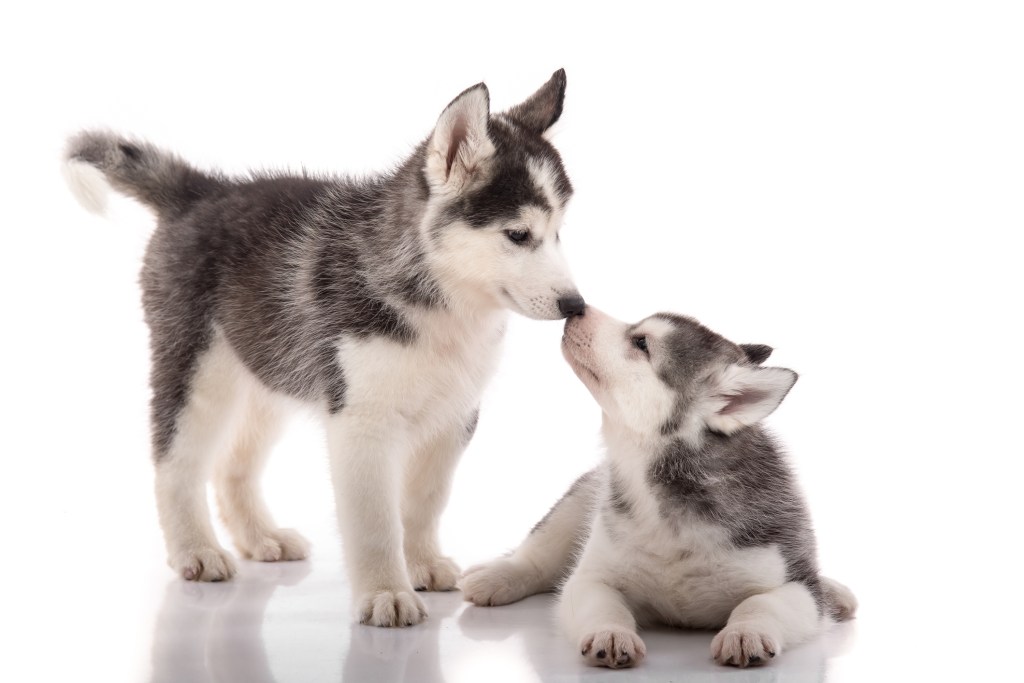
A family-oriented pack dog will never be emotionally healthy being home alone. Socialization is needed and critical, with loads of attention, love, and genuinely engaged playmates.
It’s OK to have a working family, but be financially prepared to invest in doggy daycare. Siberian Huskies are well-known to do very well in daycare facilities or wish trusted professionals.
They need you to be loving and responsible
How do you keep an extraordinary creature with deeply ingrained traits happy and healthy? By understanding everything that has been mentioned thus far and pulling it together into a bigger picture of a healthy life for your Siberian Husky.
All of the above falls into the category of giving love. Be responsible, but also just be loving. A lot of the responsibility part, which can seem overwhelming at first, just comes from taking an active interest in the well-being of your pup. Do that, and you’ll have a loyal companion.
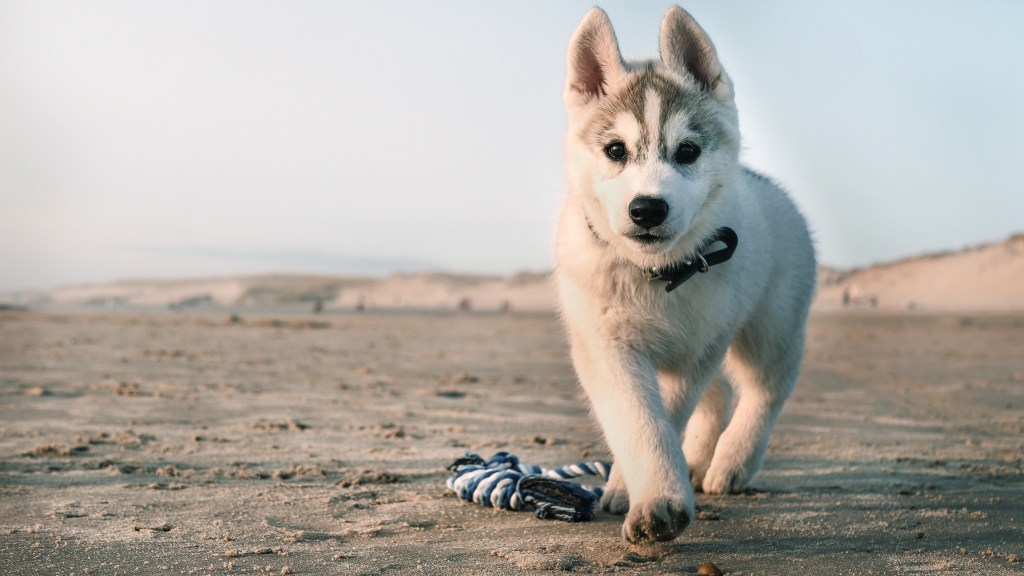
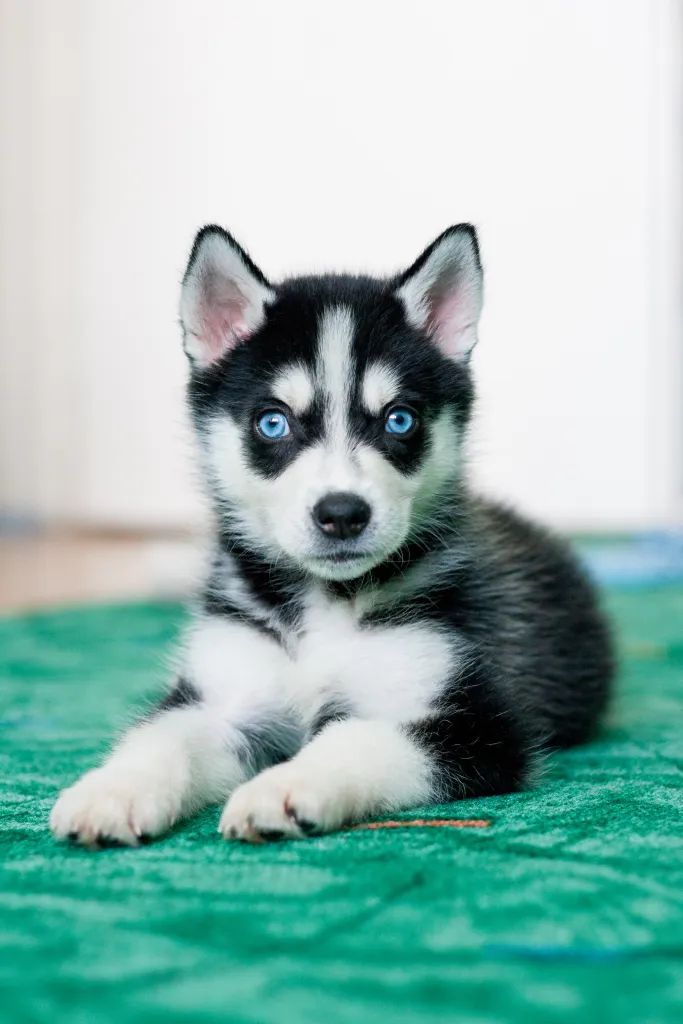
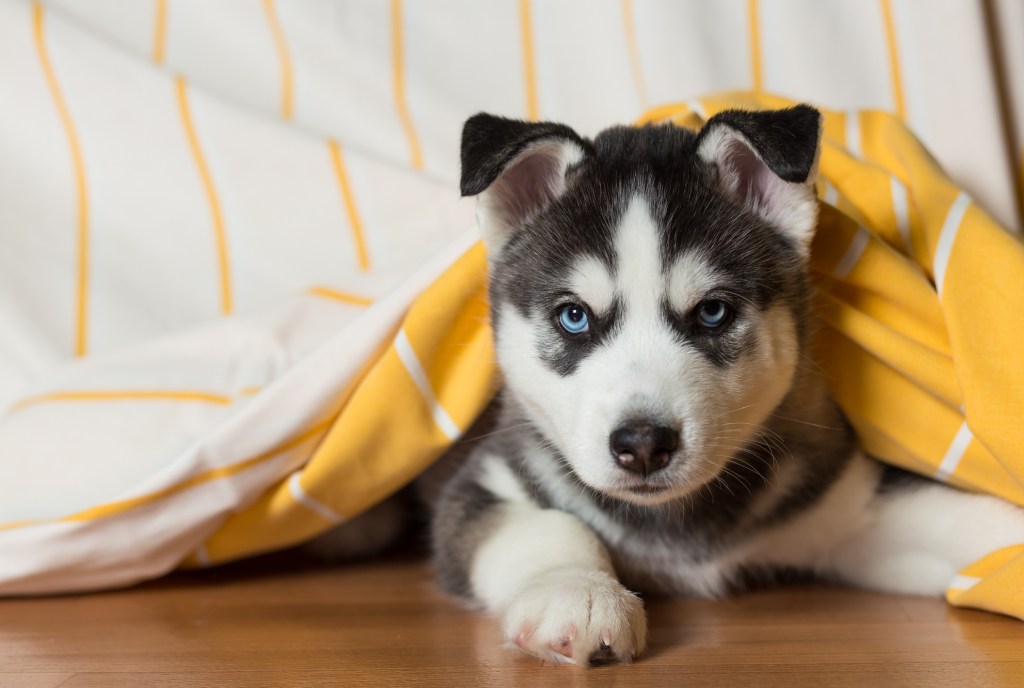
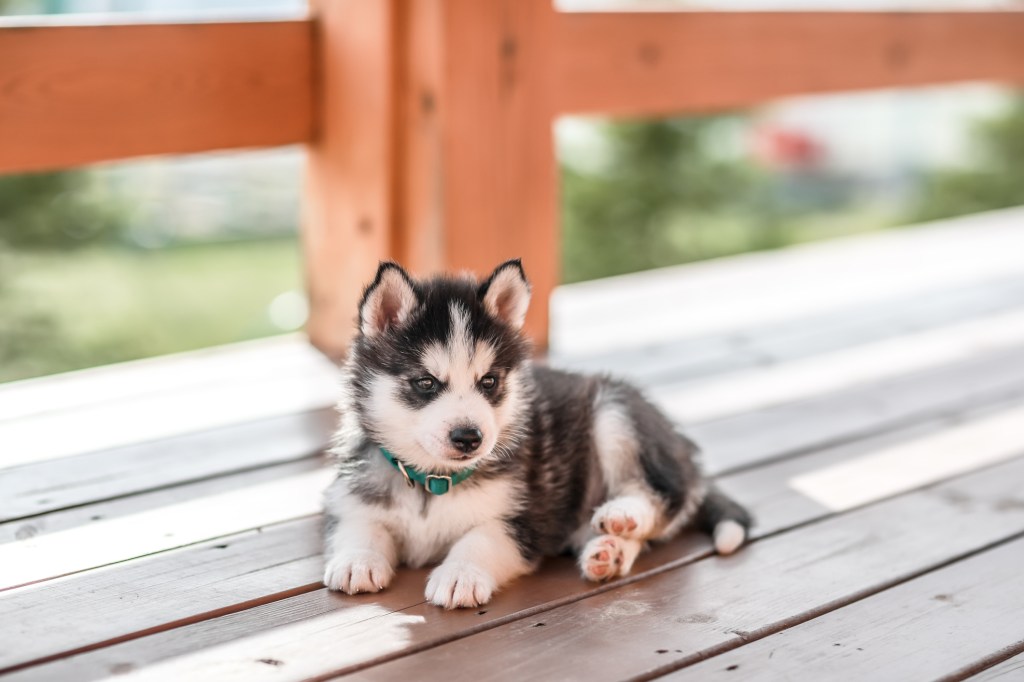
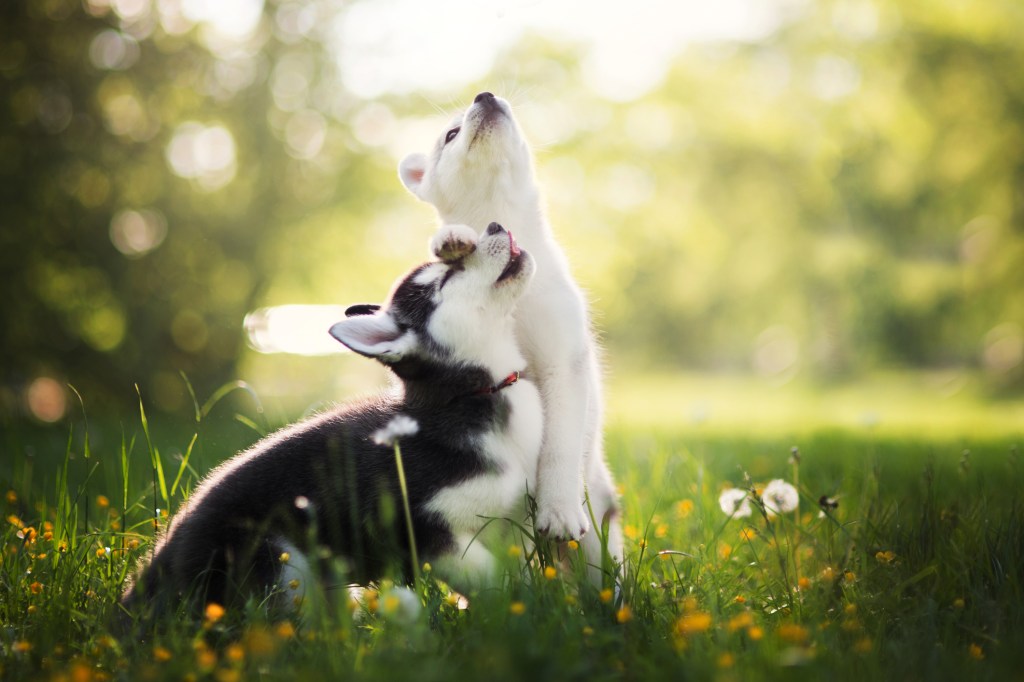
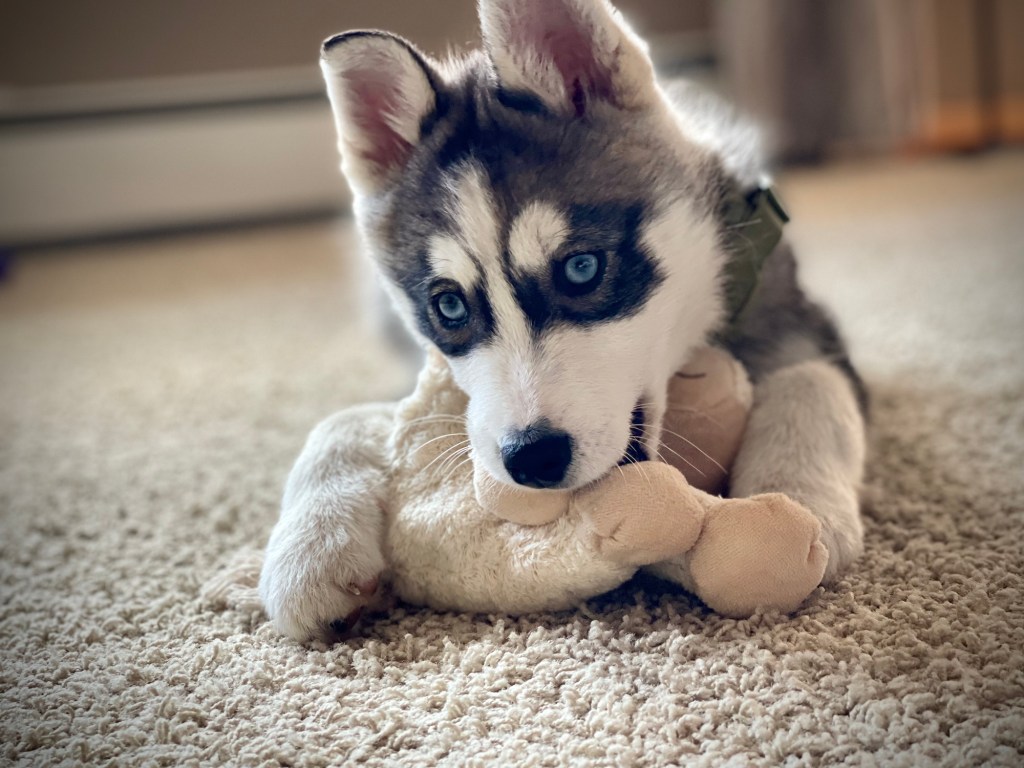
Remember to always adopt, don’t shop, when adopting Siberian Husky puppies or any other pet!
